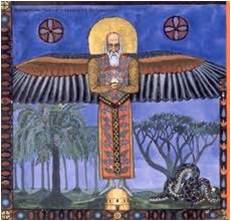Overview

The curriculum and its courses ground Jungian analytic work within a broad, multi-dimensional perspective that includes clinical, interpersonal, and archetypal approaches to psychotherapy and a wider understanding of human nature. Over the last several years, course offerings have included Greek, Egyptian, Norse, and Celtic mythologies as well as clinical courses on personality development, dream interpretation, psychopathology, and readings from Jung’s Collected Works such as Symbols of Transformation, Aion, and the Red Book.
The academic year consists of two semesters, each with fourteen weeks of classes. Regular classes are held on Mondays and some weekends. Students may choose courses to fit their schedule. A student who wishes to apply for licensure as a psychoanalyst must fulfill the requirements of New York State.
- Personal analysis
- Individually supervised clinical practice
- Classes/Seminars
- Small case study groups
- Group process retreats
- Jung’s writings and archetypal symbolism
- The theory and practice of Jungian analysis including the psychological interpretation of dreams, myths & comparative religious studies.
- Basic psychoanalytic courses in areas such as transference and countertransference, psychopathology, diagnosis, dynamics of the psyche, personality development, gender and cultural studies.
- Clinical methodology and case seminar
- Ethics in analytic practice
Upon completion of the required courses, a candidate is eligible to take the mid-program examination.
- Case seminars
- Advanced reading courses
- Control supervision
- A written thesis
A Group Process weekend which provides an opportunity to reflect on the training experience, is required for the first four years. Students are also invited to join the professional community and attend lectures given by local and visiting analysts.
Graduation Requirements
- 8 Semesters of Readings in Jungian Thought
- 7 Semesters of Clinical Classes
- 8 Semesters of Archetypal Classes
- 1 Semester of Professional Ethics Class
- 1 Semester of Research Methodology
- 8 Semesters of Clinical Case Seminar
- HIPAA training review
- 2-hour course in recognition and prevention of child abuse (usually online)
- Yearly Group Process Weekends
- 750 sessions with Low-Fee patients ($35-75)
- 160 hours of Low-Fee Supervision, minimum of 4 years
- 2 years of individual supervision (minimum 80 hours)
- 2 years of control supervision (80 hours)
- Personal Analysis throughout training (minimum of 300 hours)
- Comprehensive Examination (written and oral components)
- Thesis (written and oral components)
- Exit Interview
Fees
- Administration Fees: $2,250 per semester
- Course fees: $375 per course (full load 4 courses = $1,500 per semester)
- Analysis: c. $150 per week (cost may vary)
- Supervision for low-fee patients: Free (40 Hours per year weekly for 4 years)
- Individual Supervision: $100 per week (required with more than 5 patients, and for the last 2 years of training)
- Control Supervision $100 per week (required last two years)
